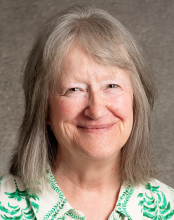Kate, now retired, has been writing since her teens, finding her voice through humorous poems, short stories, and illustrated books for children. In her early twenties she found her work in the Samaritans deeply affecting and led to a deep interest in people; what influences our beliefs and the way we think. She trained as an Autogenic Psychotherapist and Heimler counsellor, and for the last 45 years has been helping people to find their way through acute crisis to understanding and balance.
A residential course at the Arvon Foundation encouraged her to write her first novel. She attended regular classes with the Sussex University creative writing course in her local library. Always aware of people who don’t quite fit in, she is inspired by them. Her imagination took off and she now creates fictional, character-driven plots in vivid and atmospheric settings through different periods of history. She recently attended Moniack Mhor in the Scottish Highlands where her current novel-in-progress was praised for its evocative and compelling writing.
While researching her grandmother’s life in China Kate learned that it was the small and surprising details which add depth and breadth to a story. Thanks to the Churchill Fellowship she was able to travel and write her blog, ‘In Grandmother’s Footsteps’, then come home to interweave both their memoirs. She has talked about her experiences to schools and clubs to encourage anyone with a passion for their work to apply. She was made a Churchill Fellow. They want 'Slender as the Willow' to succeed and are right behind her.
Lucky enough to live in the far north of Scotland, surrounded by ancient mountains and sea lochs, she is focussed on a future career as a published author.



